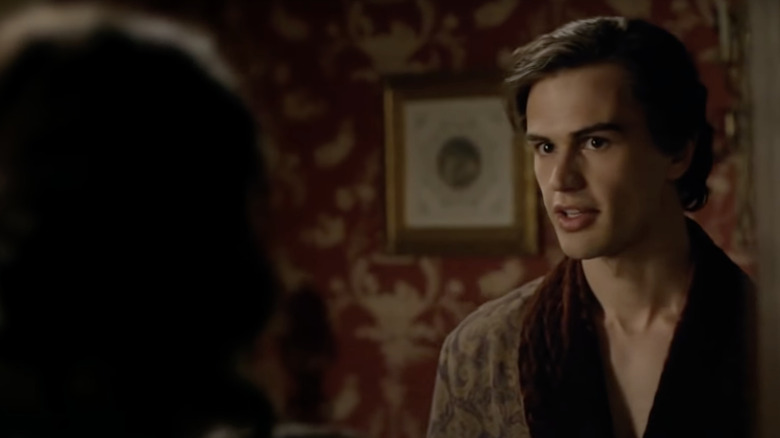What You Didn't Know About Downton Abbey's Turkish Diplomat Story
In the third episode of "Downton Abbey"s first season, a Turkish diplomat makes quite the entrance — and exit. Having arrived in London for a conference in hopes to create an independent Albania (via Downton Abbey Wiki), Kemal Pamuk falls for Lady Mary Crawley — and the feelings seem to be mutual.
Later that evening, Pamuk intrudes on Mary in her bedroom and coerces her into sex (via YouTube). However, Pamuk suddenly dies mid-way through the act of a heart attack, leading Mary to get the help of Anna to move the body back to his own room in the bachelor's wing. But knowing they can't carry him, they enlist the help of Mary's mother Cora (via YouTube). Cora immediately asks whether Pamuk forced himself on her daughter, to which Mary replies no, and the trio try to avoid a scandal from breaking out.
Eventually it does, but not in a grand drama. Instead, Mary and her father Robert have a heart to heart of sorts after Cora tells him what happened during the first Christmas special in 2011 (via YouTube). But the entire story lived long after the one episode it occurred in, and this may be because the actual scandal is rooted in truth.
The story actually happened in a great house of the 1890s
During an event at the Cheltenham Literary Festival in 2011, "Downton Abbey"s creator Julian Fellowes discussed the inspiration behind the Pamuk scandal. The story actually stems from an event that occurred in the 1890s, that Fellowes learned about from a friend of his wife who had a great house. "About 15 years ago he was looking through the diary of a great aunt, and in it was this account of a diplomat," Fellowes explained, per the Evening Standard.
In the house, there was a passage made for only single women. However, "one of them had smuggled this diplomat into her room and he died," Fellowes continued. "He said she was at her wits' end and woke up the matron," as Mary does with Anna in the episode. "The older woman realised that if the story got out, the house would be tainted by scandal." So, like Mary, Anna, and Cora, they moved the corpse to his own bed.
Fellowes said that his friend then looked in his great-grandfather's diary, which read, "We had a great tragedy this weekend. [The diplomat] was found dead by his valet in bed." The plan to move the body worked, and a scandal never occurred.

